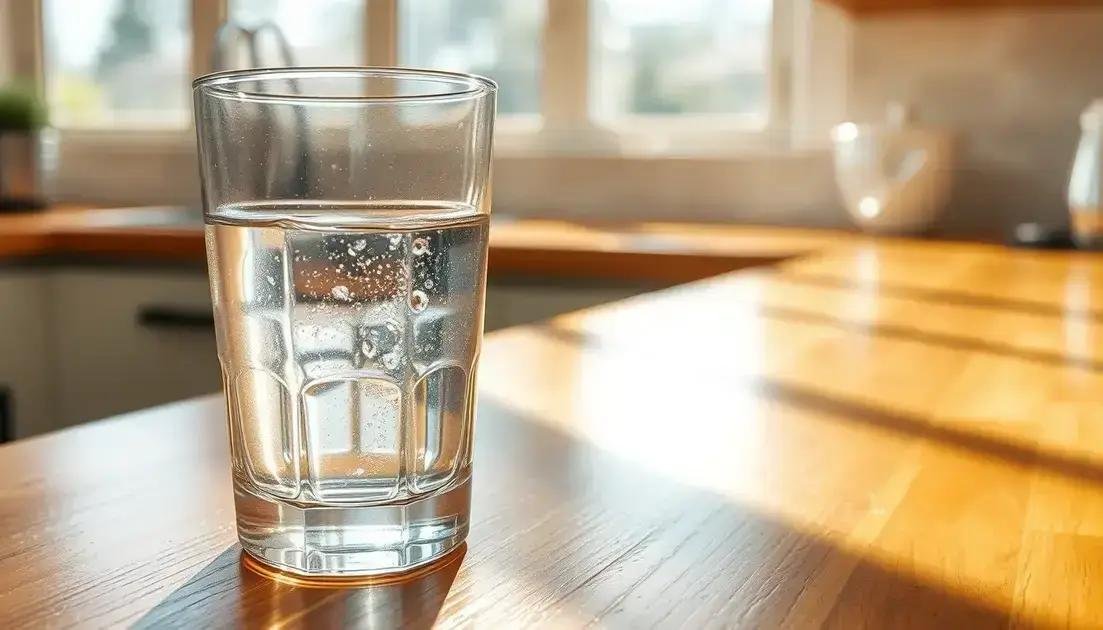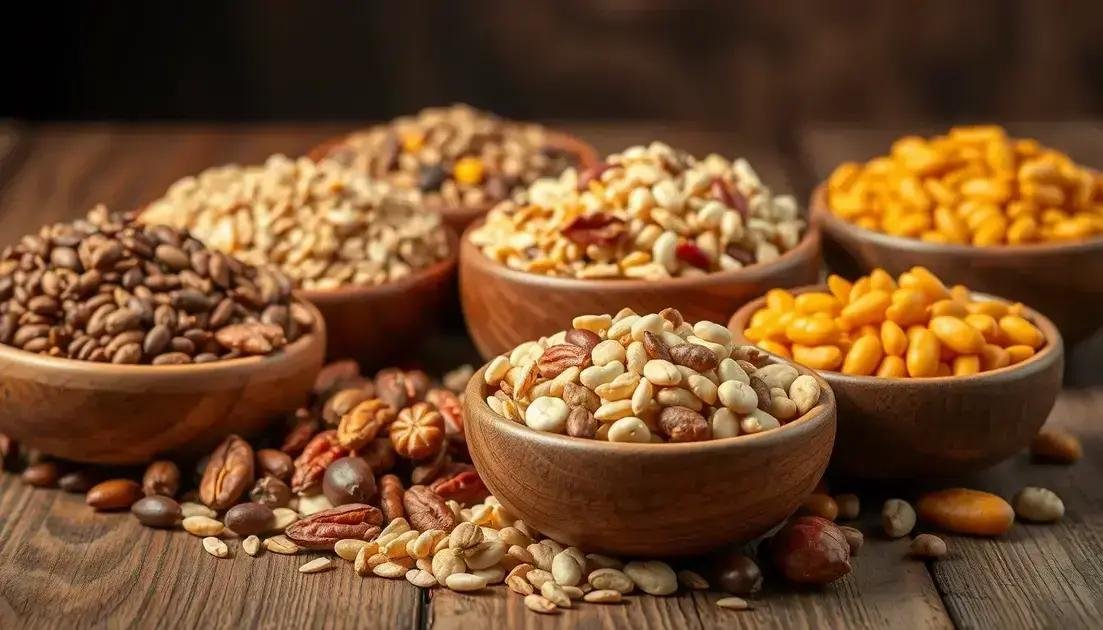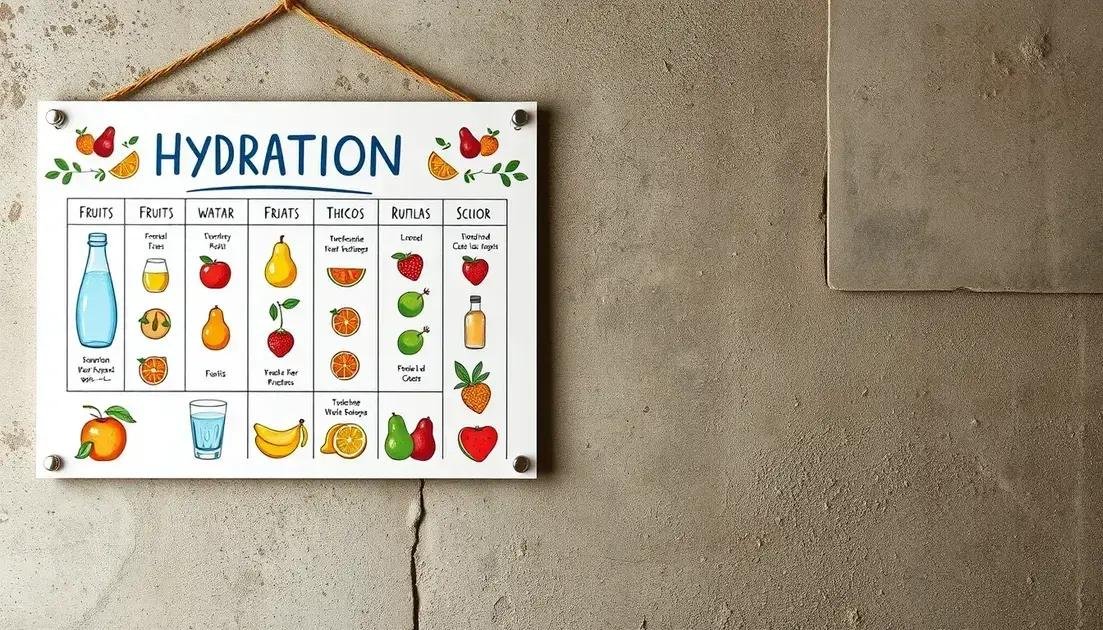
Unlocking Health: The Essential Connection Between Hydration and Food Choices
-
Lucas Souza
-
19, janeiro, 2025
Topics
 Shared
Shared
Staying hydrated is essential for maintaining overall health and well-being.
The role of hydration in our daily lives cannot be overstated, as it influences everything from physical performance to mental clarity.
Understanding the importance of water intake and recognizing the signs of dehydration can lead to significant positive outcomes in both physical and mental health.
With the myriad of benefits, proper hydration supports vital body processes and promotes optimal function.
Understanding Hydration Myths
Understanding Hydration Myths
Many people have misconceptions about hydration. A common myth is that thirst is the best indicator of hydration needs. However, by the time you feel thirsty, your body may already be dehydrated.
Another myth suggests that all fluids count towards hydration, but sugary drinks and caffeine can have a dehydrating effect. It’s important to focus on pure water intake for optimal hydration.
Daily Water Intake Recommendations

Daily Water Intake Recommendations
The amount of water you need daily can vary based on several factors, including age, gender, activity level, and climate. Generally, it is recommended that adults consume about 3.7 liters (or 13 cups) for men and 2.7 liters (or 9 cups) for women each day. This total includes all beverages and food sources.
Remember to adjust your intake on days when you exercise or experience hot weather to maintain optimal hydration.
Signs of Dehydration
Signs of Dehydration
Recognizing the signs of dehydration is crucial for maintaining good health. Early symptoms include thirst, dry mouth, and fatigue.
As dehydration worsens, you may notice dark yellow urine, dizziness, and confusion.
Severe dehydration can lead to more serious issues like rapid heart rate and fainting.
Monitoring your fluid intake helps prevent these symptoms.
Benefits of Proper Hydration

Benefits of Proper Hydration
Maintaining proper hydration is vital for numerous body functions. Adequate water intake helps regulate body temperature, supports joint lubrication, and aids digestion by preventing constipation.
Additionally, proper hydration promotes healthy skin, improving its elasticity and appearance. Furthermore, staying hydrated enhances cognitive function, improving focus and mood.
Prioritizing water intake can lead to overall better health and vitality.
Hydration and Physical Performance
Hydration and Physical Performance
Staying hydrated is key for optimal physical performance. Water plays a critical role in regulating body temperature during exercise. Adequate hydration improves endurance, reducing fatigue and enhancing strength.
Furthermore, drinking enough fluids helps prevent muscle cramps and allows for quicker recovery after workouts. Athletes should aim to hydrate before, during, and after physical activity to maintain performance levels.
Hydration for Better Skin Health

Hydration for Better Skin Health
Proper hydration is essential for maintaining healthy skin. Drinking enough water helps to keep your skin moisturized and can prevent dryness and flakiness.
When hydrated, your skin appears more elastic and vibrant. Adequate water intake can also help reduce the appearance of wrinkles and fine lines.
Additionally, hydration aids in the removal of toxins from the body, promoting a clearer complexion. Remember, drinking water is just as important as using skincare products for achieving healthy skin.
Hydration and Mental Clarity
Hydration and Mental Clarity
Staying hydrated is crucial for maintaining mental clarity. Even mild dehydration can negatively affect focus, memory, and overall cognitive performance.
Research shows that drinking plenty of water can enhance attention and short-term memory.
Hydration also influences mood, reducing feelings of fatigue and irritability.
For optimal brain function, aim to drink consistent amounts of water throughout the day.
The Impact of Hydration on Digestion

The Impact of Hydration on Digestion
Hydration plays a crucial role in the digestive process. Water helps break down food, making it easier for the body to absorb nutrients. It also prevents constipation by softening the stool, promoting regular bowel movements.
Staying hydrated ensures that digestive enzymes function properly, which is essential for effective digestion. Drinking adequate amounts of water can also reduce symptoms of indigestion and bloating, leading to a healthier digestive system.
Hydration During Different Seasons
Hydration During Different Seasons
Hydration needs can change with the seasons. In hotter months, increased temperatures and sweating demand higher water intake to prevent dehydration. Aim to drink more fluids, especially when engaging in outdoor activities.
During colder months, people often overlook hydration because they don’t feel thirsty. However, dry air can lead to fluid loss, so it’s essential to maintain adequate water intake.
Consider your activity level and climate when planning your hydration strategy throughout the year.
Hydration Needs Across Different Ages

Hydration Needs Across Different Ages
Hydration requirements vary throughout the different stages of life.
For infants, breast milk or formula provides sufficient hydration.
As children grow, they should develop a habit of drinking water regularly, especially after physical activities.
Teenagers, due to higher activity levels, may require more fluids to stay hydrated, particularly during sports.
Adults should aim to drink an adequate amount of water daily, adjusting based on activity and climate.
Seniors often have a reduced sense of thirst, making it essential to consciously maintain hydration to prevent health issues.
Hydration Tips for Busy People
Hydration Tips for Busy People
For those with a hectic schedule, staying hydrated can be challenging. Here are some simple tips to ensure you drink enough water throughout the day.
First, carry a reusable water bottle wherever you go to remind yourself to drink. Set hydration reminders on your phone to prompt you to take a sip regularly.
Incorporating water-rich foods like fruits and vegetables into your meals can also help meet hydration needs.
Lastly, try to drink a glass of water before each meal to establish a routine.
Exploring Hydration Solutions

Exploring Hydration Solutions
Finding effective hydration solutions can greatly enhance your water intake. Start by considering infused water, adding fruits or herbs for flavor without added sugar.
Use hydration tracking apps to monitor your daily intake and remind you to drink more. Additionally, try setting a specific goal, such as drinking a glass of water before each meal.
For those on the go, consider electrolyte-enhanced beverages for replenishment after exercise or during heat.
Lastly, herbal teas and broths are also excellent options for staying hydrated throughout the day.
Conclusion
Staying properly hydrated is vital for overall health and well-being.
Understanding the importance of water intake, recognizing the signs of dehydration, and following hydration tips can significantly enhance physical and mental performance.
By incorporating hydration strategies tailored to different ages and seasons, everyone can achieve optimal hydration levels.
Emphasizing water-rich foods and exploring various hydration solutions further supports this essential habit for a healthier life.
FAQ – The Importance of Hydration
Why is hydration important for overall health?
Hydration is essential as it affects bodily functions, including digestion, cognitive performance, and physical abilities.
How much water should I drink each day?
Adults should aim for about 3.7 liters for men and 2.7 liters for women, adjusting based on activity and climate.
What are the signs of dehydration?
Signs include thirst, dry mouth, fatigue, dark yellow urine, dizziness, and confusion.
How does hydration affect physical performance?
Proper hydration helps regulate body temperature, enhances endurance, and prevents muscle cramps.
Can hydration improve skin health?
Yes, staying hydrated keeps your skin moisturized, improves elasticity, and reduces the appearance of wrinkles.
Do hydration needs change with age?
Yes, hydration needs vary by age, with infants needing their milk, children developing water habits, and seniors needing to consciously maintain hydration.
How can busy people stay hydrated?
Carry a reusable water bottle, set hydration reminders, and drink a glass of water before meals to stay hydrated.
How should my hydration change with the seasons?
Increase fluid intake during hot months due to sweating, and maintain hydration in colder months despite lower thirst response.
 Return blog
Return blog